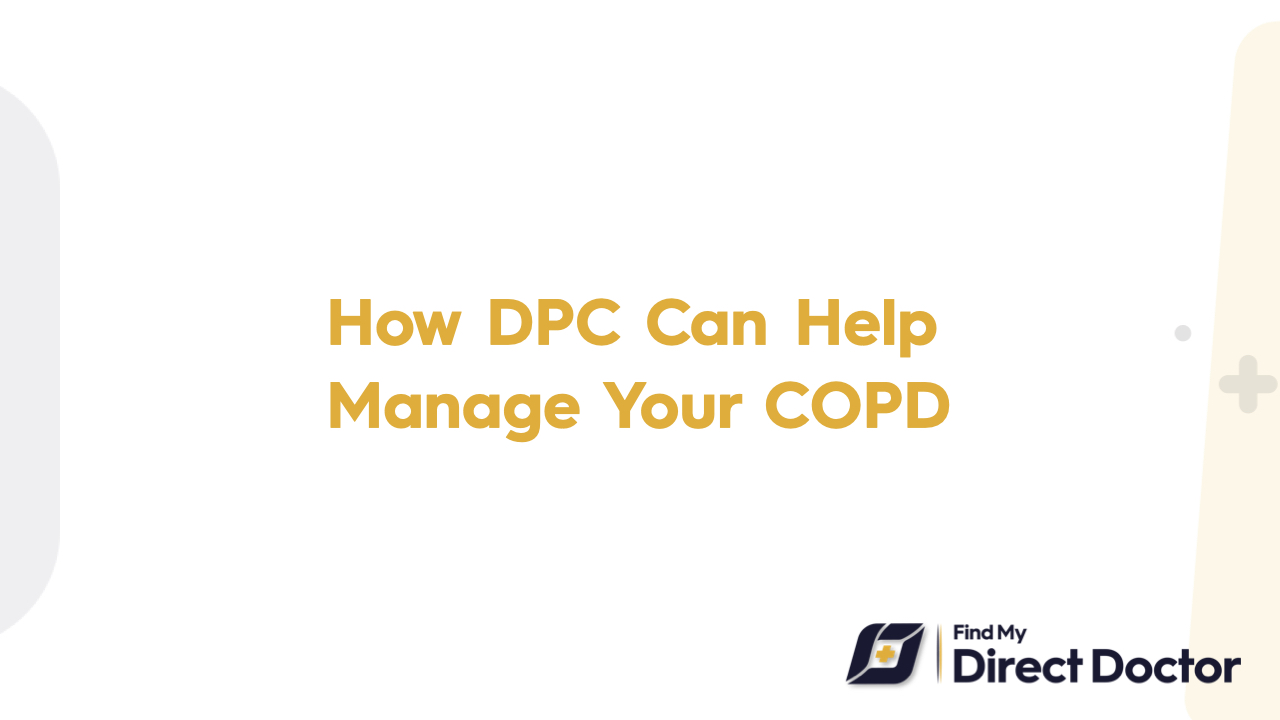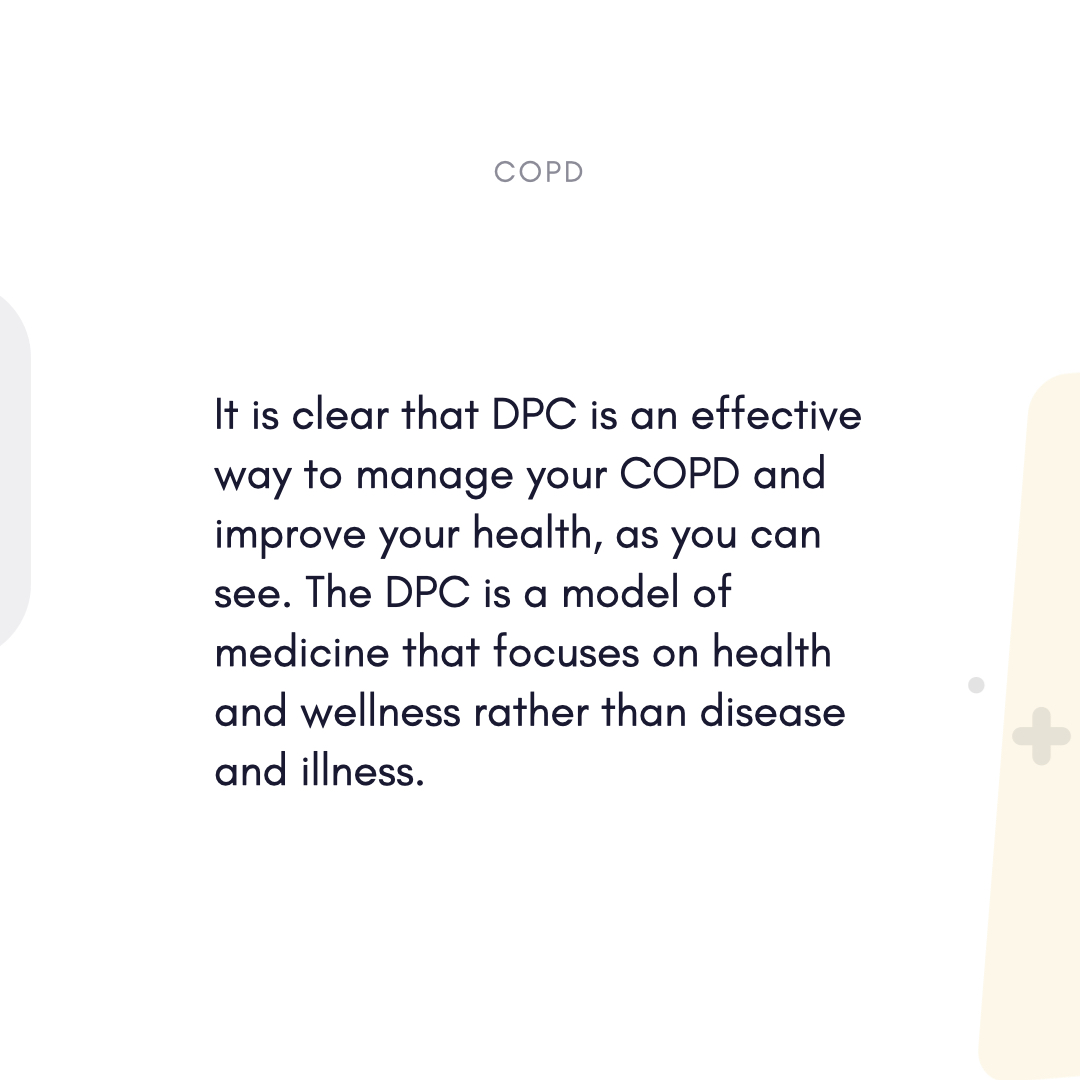COPD and Direct Primary Care (DPC): Streamlined, Patient-Centered Support for Lung Health
Chronic obstructive pulmonary disease (COPD) is a progressive condition causing breathlessness, persistent coughing, and recurrent exacerbations that require continuous, proactive treatment to slow progression and improve quality of life. Direct Primary Care (DPC), a membership-based healthcare model, provides easily available, tailored treatment compliant with recommendations from pulmonary societies like the American College of Chest Physicians and Canadian Thoracic Society.

How DPC Helps Control COPD (Proactive Monitoring)
- Frequent interactions: Track symptoms (sputum changes, wheezing, oxygen levels) via in-person/telehealth visits. Use in-office PFTs or home spirometry to monitor lung function.
- Early intervention: Adjust medications and address warning signs (increased coughing, fatigue) to prevent hospitalizations.
Personalized Therapies & Medication Routines (Tailored Care)
- Inhaler optimization: Adjust corticosteroids, LABAs/LAMAs, or roflumilast based on symptom frequency/tolerance.
- Exercise programs: Collaborate with respiratory therapists on low-impact activities (swimming, walking) to preserve lung capacity.
- Interdisciplinary collaboration: Partner with pulmonologists for advanced therapies (BiPAP, oxygen).
DPC Lifestyle & Prevention (Holistic COPD Management)
- Smoking cessation: Prescribe varenicline, nicotine patches, and connect to cessation programs.
- Vaccinations: Ensure flu, pneumonia, and COVID-19 shots to reduce infection risks.
- Nutrition guidance: Recommend high-protein, anti-inflammatory diets to combat muscle wasting.
- Mental health integration: Screen for anxiety/depression; offer SSRIs or counseling to boost adherence.
- Self-management education: Teach energy conservation, pursed-lip breathing, and flare-up action plans.
How DPC Helps COPD Patients (Cost & Continuity)
- Reduced hospital visits: Aggressive symptom control cuts ER trips by up to 40%.
- Cost transparency: Flat monthly fees (USD 50–150) cover spirometry, specialist coordination, and inhalers.
- Continuity of care: A trusted provider optimizes oxygen use, inhaler technique, and rehab plans.
Limitations (Important Considerations)
- Severe exacerbations (respiratory failure) require ER/pulmonologist care beyond DPC’s scope.
- Insurance remains necessary for hospital stays, surgeries, and long-term oxygen equipment.
Final Notes (Comprehensive COPD Care)
- DPC closes gaps in traditional COPD care by prioritizing access, prevention, and tailored support.
- Aligns with pulmonary guidelines through same-day flare-up management and holistic plans (mental health, vaccines, smoking cessation).
- Preventive education and strong patient-provider relationships transform COPD management into a collaborative effort, preserving lung function and quality of life.
- Partnering with a DPC provider offers a committed ally in optimizing inhalers, rehab, and end-of-life planning.






